
Ask questions
Your pharmacist lives and breathes medications all day. They are an incredibly knowledgeable resource you should use, especially if you’ve got a doctor who watches the clock during appointments. “Always ask for information about your medicines in terms you can understand,” says Brian R. Malone, R. Ph, director of Pharmaceutical Services and Medication Safety Officer at NYU Winthrop Hospital on Long Island, New York. He suggests writing down these questions, and taking them with you, each time you fill a new prescription:
- What is this medicine for?
- How am I supposed to take it and for how long?
- What side effects are likely? What should I do if they occur?
- Is this medicine safe to take with other medicines or dietary supplements?
- What food, drinks, or activities should I avoid while taking this medicine?
(Also, see if you should get a medication review.)
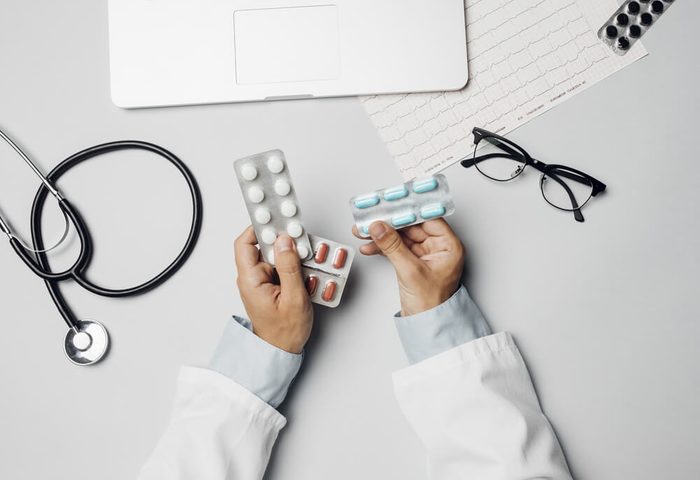
Pharmacists are human, too
They make mistakes. Ask if they use bar-code systems to keep them from pulling the wrong drug off the shelf, or from giving the wrong strength of the right drug. (Speaking of mistakes, check out the ones that put your kidneys at risk.)
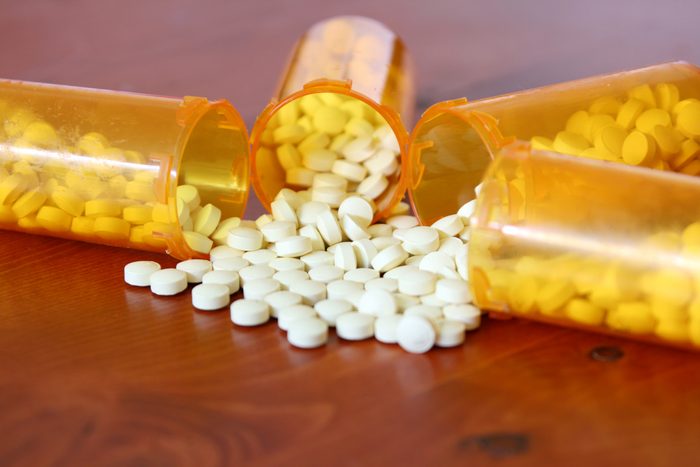
Don’t assume that if it’s over-the-counter, it’s safe
According to Daniel Zlott, a pharmacist at the National Institutes of Health, this may not always be the case. “I’ve seen serious complications” with over-the-counter meds, he says. (Also, check out this list of common prescriptions drugs and supplements you should never mix.)
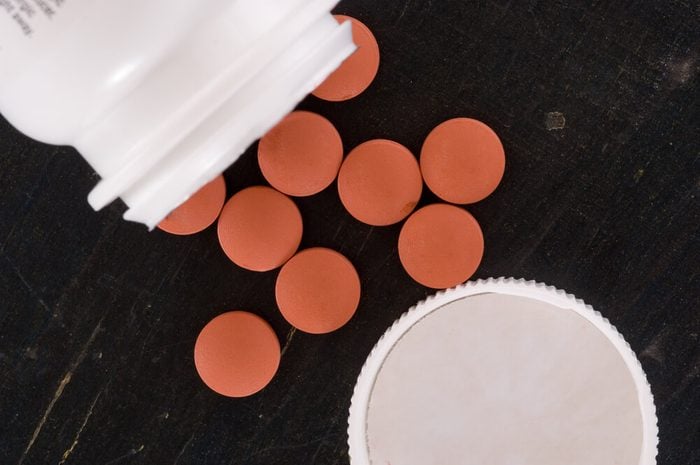
An over-the-counter version of your medication might do the trick
Talk to your pharmacist about a possible over-the-counter version that could potentially save you money. (Psst: See if you should take zinc for a cold.)
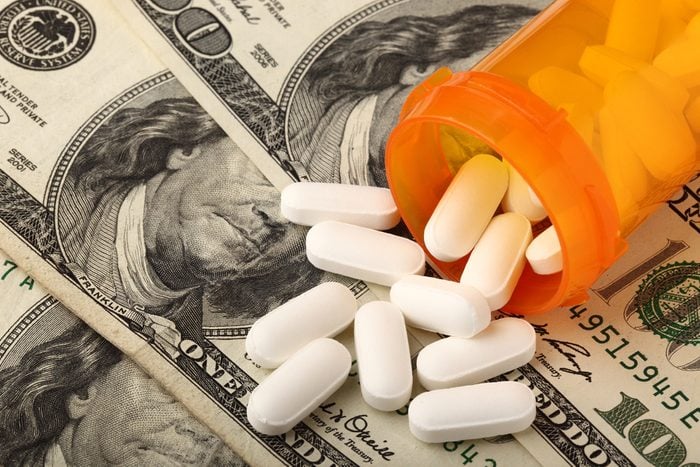
They can try to save you money
“A good part of a pharmacist’s time is spent dealing with patients and their incomes,” says pharmacist Cindy Coffey. Part of that is suggesting generic or OTC alternatives. “Or if a doctor has prescribed a newer drug with no generic alternative available,” says Zlott, “I might call the doctor to suggest an older drug that’s equally effective.” (Here are other ways you can save money this year.)

The more they know you, the more they can help you
“The better I know you as a patient—your health history, your family, and how busy your life is—the better I can tailor medications to fit your lifestyle,” says Zlott. “You may not want to take a drug three times a day, for example, and I’ll know that if I know you.” Here are some tips for being as healthy as possible.
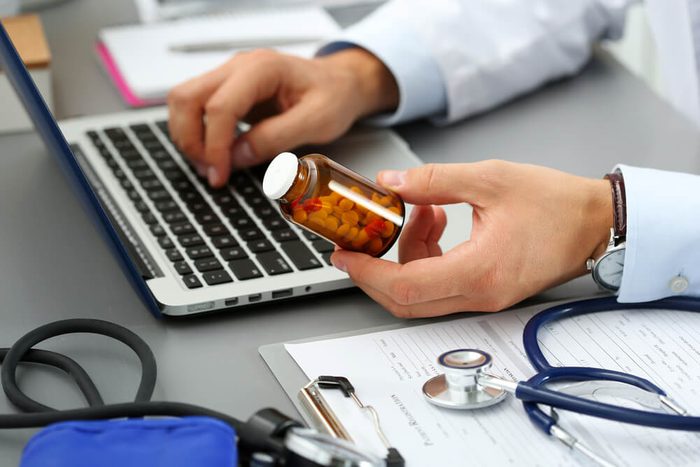
Don’t cheat on your pharmacist
It may be more convenient to sometimes use the pharmacy at work, and other times, the one closest to home, but filling your prescriptions at multiple locations removes a layer of protection from your care, which could make your prescriptions less effective—or even deadly. Drug interactions are a real thing—and that includes every drug, including those that don’t require a prescription. “Make sure all your doctors are aware of every medication you’re taking, including over-the-counter medicines, vitamins, and herbs,” urges Malone. Remember that some medications cancel each other out, and others are dangerous to mix. (Learn if it’s safe to mix over-the-counter drugs with supplements.)
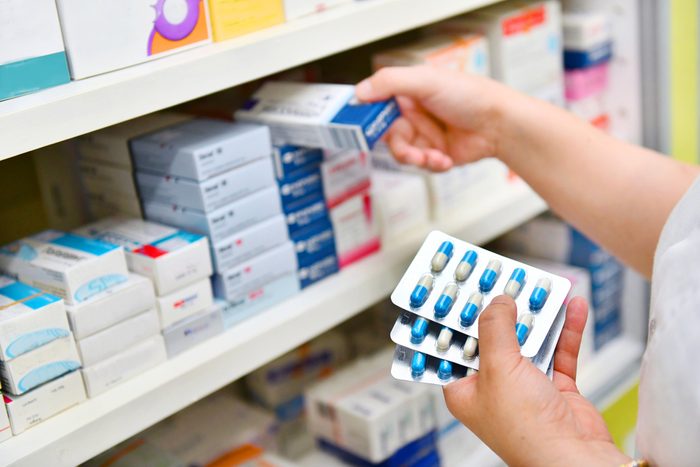
Use one pharmacy if you can
There’s not some big computer database that tracks your drugs and flags interactions for pharmacists everywhere. If you start using a new pharmacy, make sure we know what you’re already taking. (Psst: See what the world’s healthiest people have in common.)
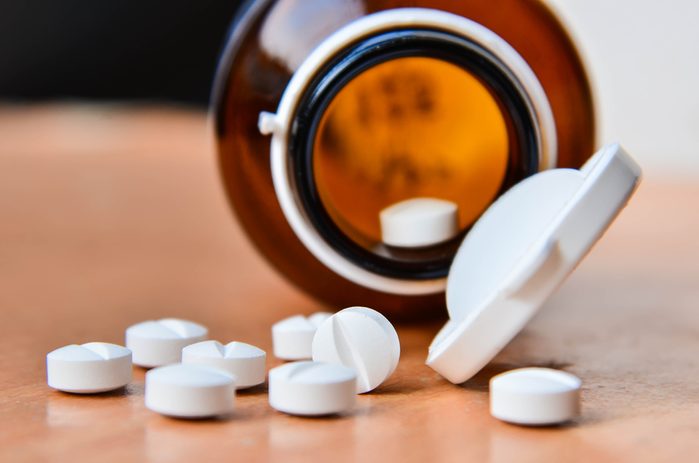
Generics are a close match for most brand names
Chains like Shoppers Drug Mar and Wal-Mart offer them. But be careful with blood thinners and thyroid drugs, since small differences can have big effects. (You should also know that these plant remedies can treat common health conditions.)

There’s a way to avoid lines
It gets busy Monday and Tuesday evenings, since many new prescriptions and refills come in after the weekend. Generally, the best time to visit is in the middle of the week or during the workday—but stay away at lunch hour. (Check out the worst emergency room wait times in Canada.)
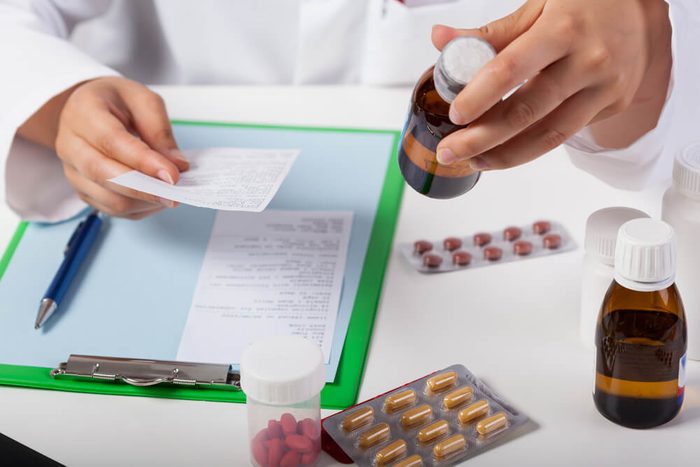
Yelling at them won’t help
If they can’t reach your doctor and/or insurance company to approve a refill, there’s nothing they can do about it. “It’s frustrating,” says Zlott, “but I’d be breaking the law in some states if I gave it to you.”

Pharmacists are required by law to counsel patients and answer their questions
If your pharmacist seems too busy to talk with you, take your business someplace else. (Psst: Check out the vitamin secrets doctors tell their friends.)
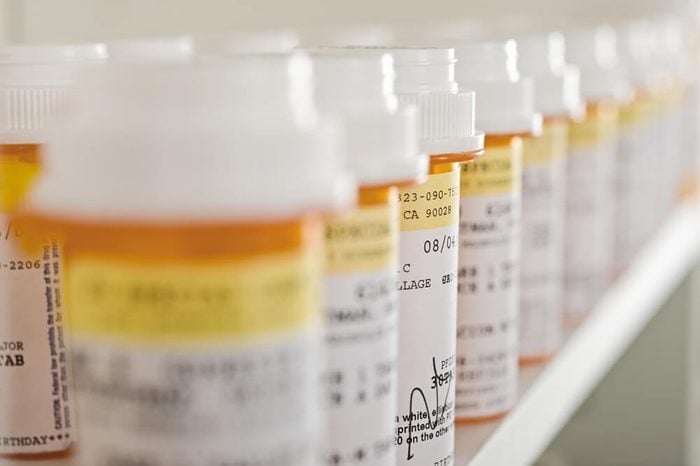
Pharmacists are filling more prescriptions than ever
“Some pharmacies are so volume-driven that the pharmacist can’t look up all day,” says Coffey. In most chain stores, pharmacists have just 15 minutes to fill a prescription. They may also be expected to answer the phone, counsel patients, call insurance companies, and run the cash register—all while making sure you get the right medicine at the right dosage.
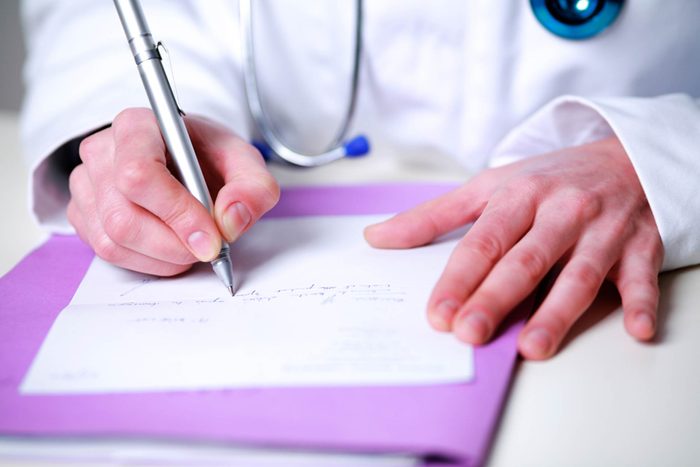
Sometimes they can’t read the doctor’s handwriting either
E-prescribing can help! According to Surescripts’ 2017 National Progress Report, e-prescribing is up more than 500 percent since 2015.

Pharmacists can give you the flu shot in most provinces
Flu shots can be administered at pharmacies in British Columbia, Alberta, Manitoba, Ontario, New Brunswick, Nova Scotia, Prince Edward Island and Newfoundland and Labrador. Find out if you should get the flu shot.
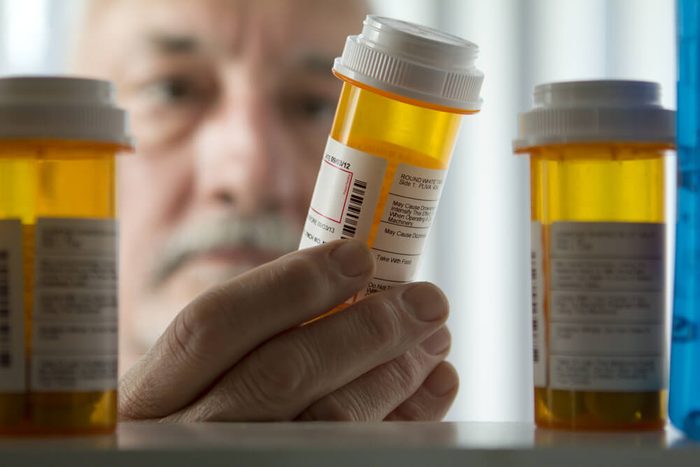
People take too many drugs
Two out of every three patients who visit a doctor leave with at least one prescription for medication, according to the Institute for Safe Medication Practices. “Drugs are an easy solution,” says Feldman, “but there are other solutions.” (See why the best treatment for some mental health conditions isn’t just medication—it’s getting to the root cause.)

The white coats inspire trust
Many pharmacists wear white lab coats because it inspires trust. In one study, three out of four respondents judged a pharmacist in a white lab coat as more competent and approachable compared to one who was just dressed professionally. (Psst: Check out the secrets your dentist won’t tell you.)

Beware this word: phenylephrine
That’s the active ingredient in most over-the-counter cold medicines, but it’s no better than a placebo. Drugmakers started using it after pseudoephedrine, a decongestant that does work, was forced behind the counter because it was being used to make meth.

Electronic prescriptions are not instant
Ordinarily, they’re sent to a third-party service that then sends them to the pharmacy in hourly batches. So don’t drive straight to the drugstore after your doctor sends an e-script and expect it to be ready. Call first. (Want to skip the pharmacy? Learn about a new telemedicine company in Canada.)

They may be able to fill your prescriptions for your dog, too
As long as the same drug is also prescribed for humans, that is. They may also charge less than your vet.

If you’re paying out of pocket for your drugs, shop around
Prescription drug prices can vary depending on where you buy them. Always shop around.

There’s a reason the pharmacy in the back of the store
The design is intentional, in the hope that you’ll see something you’ll be tempted to buy as you walk through the aisles.

Try an independent drug store
If you want more personalized attention and a shorter wait, try an independent drugstore. Independents significantly outperformed chains in customer satisfaction and wait-time, according to surveys conducted by J.D. Power and Consumer Reports. (Psst: Check out why you should talk to your doctor before taking supplements.)

Don’t rush it
That line at the pharmacy counter may be annoying, but it’s long for a reason. Your pharmacist has a ton of things to do—and it takes time to do it right. “A pharmacist’s job to a layperson may seem simplistic, but there are many functions, from reviewing your profile to checking interactions, and making sure you’re getting the correct drug, and dosage,” says Fernando Gonzalez, RPhI, assistant professor pharmaceutical sciences division at Long Island University’s Arnold & Marie Schwartz College of Pharmacy and Health Sciences. “Patients should realize that rushing a prescription is like telling a pilot not to check the landing gear before takeoff,” he adds.
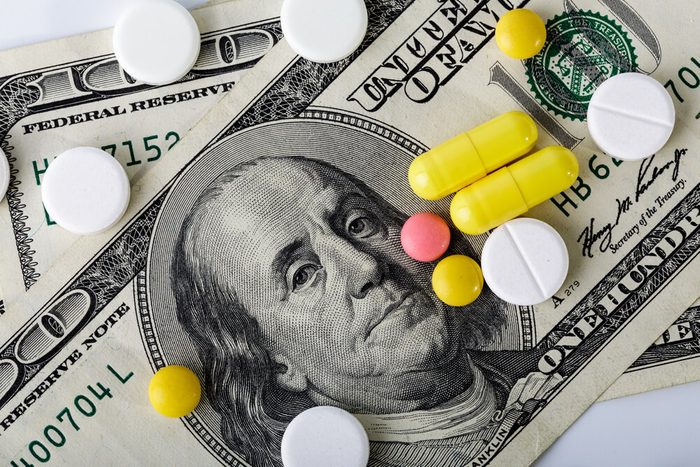
Know what your prescription plan covers
Medication sticker shock is as upsetting to your pharmacist as it is to you. They want you to be able to get the medications best able to make you well, but these conversations are better had with your doctor, or insurance company, rather than your pharmacist. “It’s important for patients to have a better understanding of their insurance plans, so they know if certain medications will be covered, or if they will wind up with a huge bill. Pharmacists have become the bearer of bad news regarding plan limitations, copays, and deductibles.
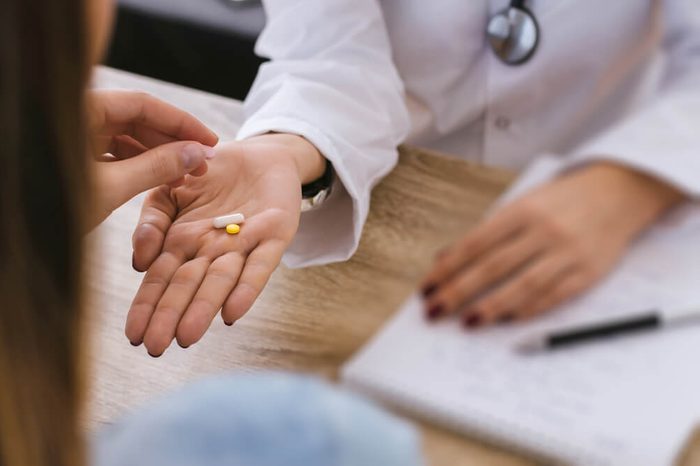
Ask them to review all your medications
Your conditions change over time, and so do the medications on the market which can treat them. To make sure you’re getting the best, up-to-the-minute care available, Malone suggests bringing all of your medications to your doctor, at least once a year. “Brown bagging your medicines can help you and your doctor talk about them and find out if there are any problems,” he adds. (Check out these steps to make sure you get the best medical care.)
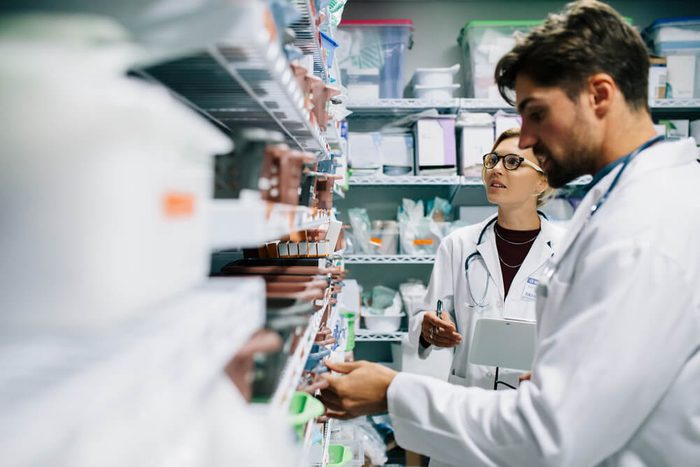
Don’t take (medical) matters into your own hands
Medications can become expensive, but don’t let cost jeopardize your health. According to Gonzalez, patients should become better educated about their medication options, including their cost, but must be proactive, and ask to be counseled, if that information isn’t readily supplied. “Today’s drugs are so potent and so expensive. Taking them correctly is the key to disease management. Many patients who have reached, or exceeded, their plans max now have to pay a higher fee for their prescriptions and tend to start extending the medications they have by not taking them as prescribed, or not taking them at all. This is a very dangerous practice,” he says. Talk to your doctor or pharmacist about plans which may be more affordable for you, and find out which drug manufacturers might be willing to provide you with free or lower-cost medications. (Psst: Check out what doctors wish they could tell you.)
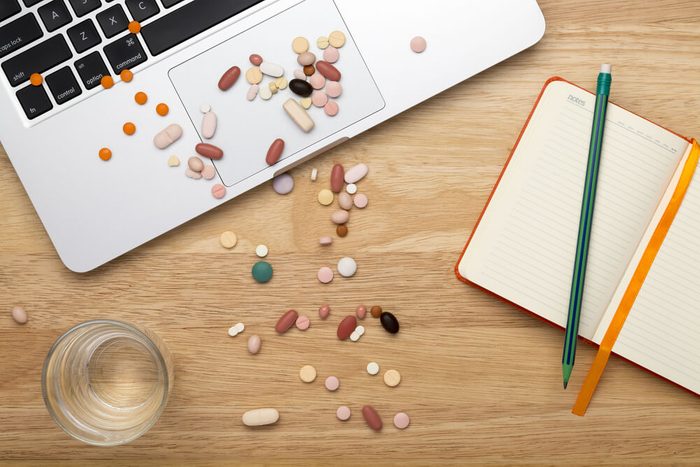
Save the Internet for social networking, not for buying medicine
“Patients need to have an understanding of the dangers of purchasing medications from unapproved sources. Examples of this are invalid Internet sites, that could offer prescription drugs at dramatically low prices. In most case, these are unapproved, and may even be counterfeit. The U.S. Food & Drug Administration has the highest standards of drug approval in the world, and all manufacturers must comply. That is not true of drugs you buy from unauthorized sources, including individuals who claim to be selling prescription drugs they no longer need,” says Gonzalez. (See other ways social media is harming you.)
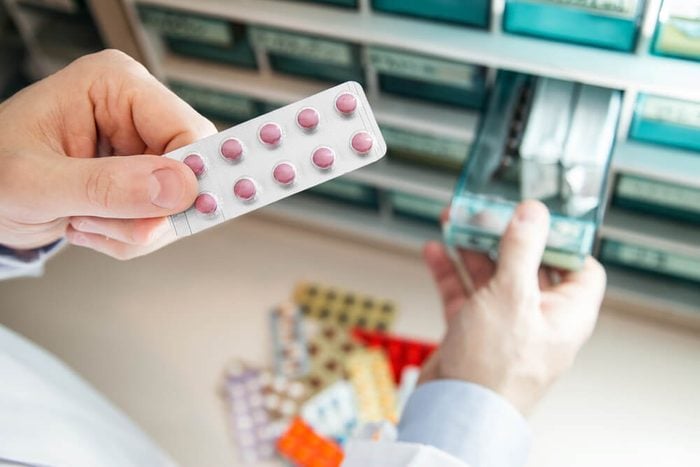
Double-check your medication
Ask to look at your medication bottles before they are bagged. “Patients should check their medications before they leave the pharmacy. Look at the vial to check the name of patient, drug, doctor, and directions. Patients need to talk to the intern or pharmacist, not the cashier, to get these answers. If your medications look different, either in shape or colour, always check with the pharmacist,” says Gonzalez. (Also, check out these medications you should think twice before mixing with exercise.)
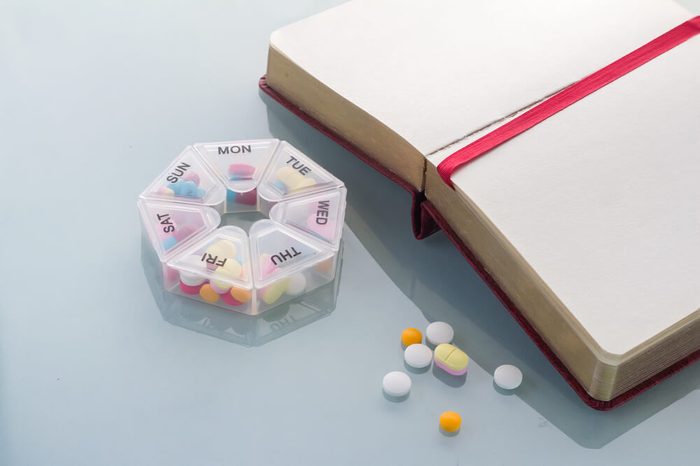
Have a medication planner
“Have your family, or caregivers, pre-pour your medications into a medication planner if you find that you’re forgetting to take your medications,” says Malone. This can also help you avoid dangerous overdoses if you don’t remember taking your medication and accidentally take it twice.
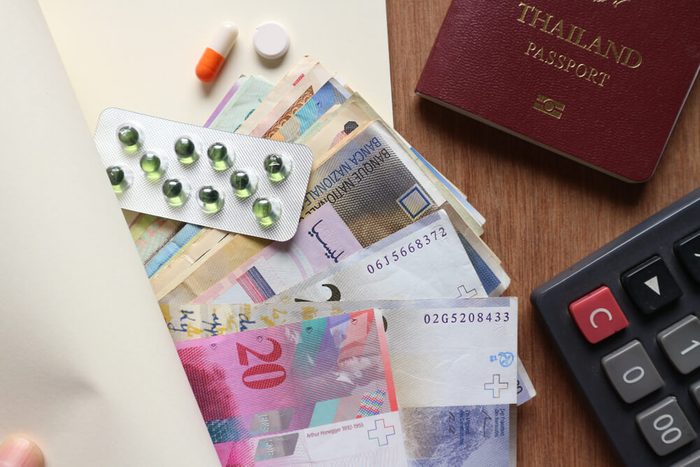
Have a list of your medications on you when you travel
Whether you plan to travel around the world, or simply to another state, be proactive about your medications. You may forget, or lose, something you desperately need, without a pharmacy you trust nearby. “When travelling, keep a list of all your medications with both brand and generic names. There are drugs manufactured in other countries with the same brand name as in the U.S. which contain different active ingredients. Patients should also know to keep medications in their carry on bags. In addition, dosage adjustments for time zone changes may be needed. Consult with your pharmacist before you go!” stresses Gonzalez. (Also, here’s how to prevent vacation constipation.)
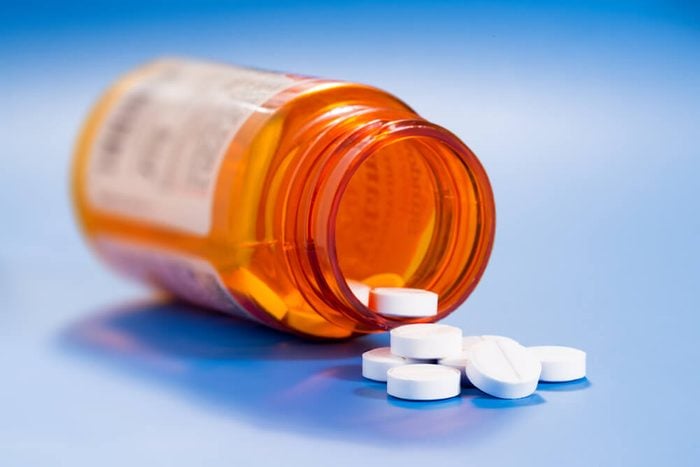
Don’t forget to check expiration dates
“Outdated medications not only lose their strength, but can also become toxic, and make you ill,” says Malone. Schedule a specific time once or twice a year, for checking expiration dates on your prescription, and over-the-counter medications, and dump anything that has expired. Some people do this when they change the batteries in their smoke detectors, or as part of an annual spring-cleaning ritual. (Also, see the foods you should never eat past their expiration date.)

Always double-check the label before taking a medication
Don’t ever take medications without your glasses on, if you wear glasses, or in the dark or semi-dark. Believe it or not, Malone was once consulted by someone who’d put hydrocortisone cream on her toothbrush for two days straight. Another woman contacted him when she accidentally took her dog’s worm medication. Taking medication can become an automatic thing that you do without thinking. Rather than going on auto-pilot, stop for a minute, and make sure you are taking what you’re supposed to in the right dosage. (Also, check out the trusted home remedies that’ll only make you worse.)
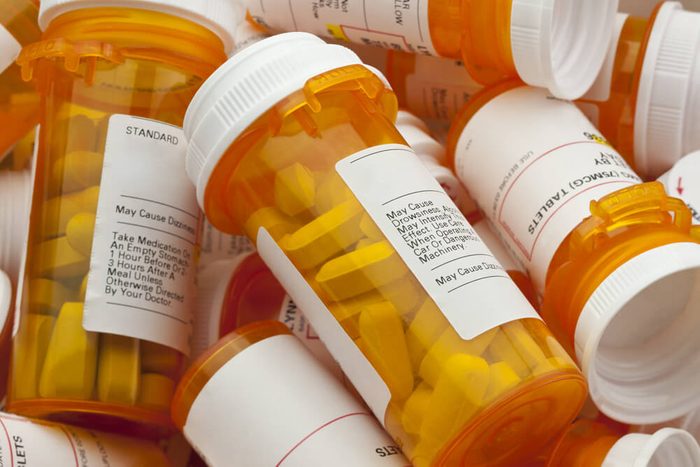
Personalize your medication bottles
If you live with others, separate everyone’s medications and, if possible, keep them in different places. If that is not practical, find a way to identify each household member’s meds, including pets. Pill bottles all look alike, and so do many pills. Try colour-coding the bottles with a marker or with nail polish so you don’t take someone else’s drugs by mistake.
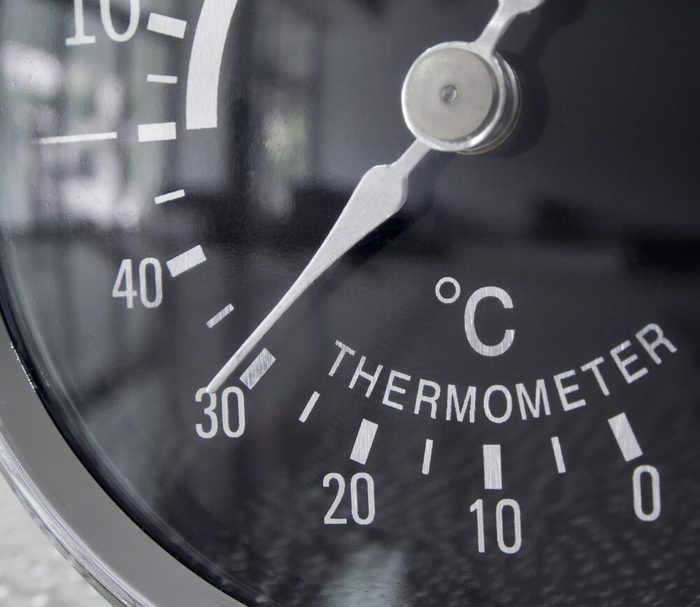
Keep your medications at room temperature
And then there’s the one about the woman who took over-the-counter allergy pills which had been kept in a hot glove compartment for two days. She became violently ill (plus got no allergy relief). “Don’t keep medication in direct sunlight, or subject them to extreme temperatures, ever,” says Malone. Life-saving medications, such as nitroglycerin, lose their effectiveness if they are kept in too-hot temperatures for too long. In fact, all medications should be kept at room temperature, unless their label specifies that they be refrigerated.
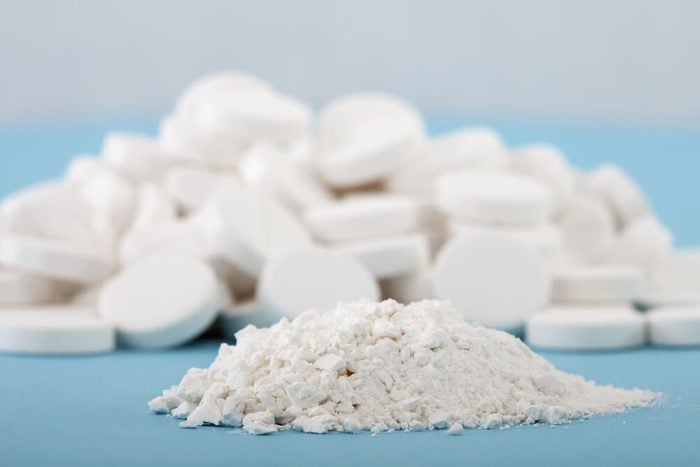
Don’t crush any pills before talking to your pharmacist
Malone stresses that even though pills are sometimes hard to swallow, they should never, ever be crushed up without your doctor’s OK. This is because some medications are time-released and are designed to slowly enter your bloodstream. Crushing them up eliminates their ability to work as they should and may even be dangerous. If you are having trouble swallowing your pills, do not stop taking your medication. Talk to your doctor about alternative drugs, such as those in liquid form, which will be easier for you to tolerate.
Next, check out the secrets your surgeon won’t tell you.
